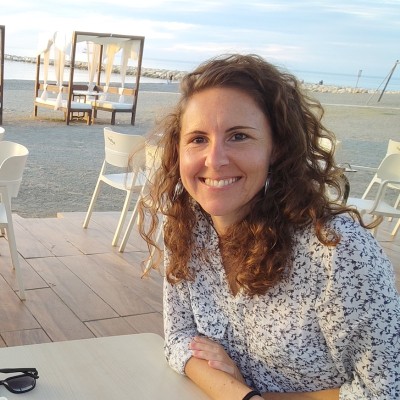Renato Beninatto is the CEO of Nimdzi Insights and a recognized thought leader in the language industry. His presentation about niches and specializations at our recent #LocFromHome conference was such a hit that we decided to bring him back for our Connected Translation Community’s first Ask Me Anything.
Read on to learn from his experiences starting out, his reflections on the past, his assessment of the present, and his predictions for the future of the language industry. You’ll also learn a new word in a language you may not have even heard of.
You said that you started as a translator by chance. What training/education did you get to keep developing in this role? And what drove you to take other positions in the language industry?
There wasn't a lot of training available at the time. There were universities that taught you how to translate literature and around the time that I started, Daniel Brilhante de Brito started a very good translator training course in Brazil (which continues to this date through his daughter) which I didn't take.
What I did was to read a lot of books about translation theory (which were interesting but not very insightful) and also Escola de Tradutores, by Paulo Rónai, which is excellent. I learned a lot from colleagues and I started a group in Rio de Janeiro inside ABRATES, where technical translators could meet and discuss challenges. This was in the mid 80s and it was very productive.
Very early on, I realized that my income was not going to grow as much if I remained a freelancer, so I started my own translation company. As business became more complex, I created a series of training courses for my translators and also for outside professionals. It was called TTT (Técnicas de Tradução Técnica).
Those were different times and everything was done at the local level. Today, the opportunities for learning and professional development are multiple and easily accessible.
What drove to take other positions in the industry was just the fact that the industry was growing and there was more demand for executives. After I sold my company, which had offices in Brazil and Argentina, I became VP of Sales for Berlitz in New York, then ALPNET (which was acquired by SDL). After that, I realized that there was room for market research and started Common Sense Advisory in 2002. Then I sold it and was hired as the CEO for a company in Europe. And this is how it goes... as you get more experience, people invite you for other jobs.
But I am a translator at heart and an entrepreneur by nature.
Today, the opportunities for learning and professional development are multiple and easily accessible.
Can you tell us more about Nimdzi?
Nimdzi Insights is a market research and consulting company focusing in the language services space. We work with final clients, LSPs, and technology companies usually on growth and transformation projects.
We also have a training arm, which we are developing into Nimdzi Learning, that provides professional development on Project Management, Account Management, Sales, Usability and other topics related to translation and localization.
A lot of our research is free, as the value that we try to provide is through the interactions that our clients have with our 25+ consultants and analysts around the world. Check out our market analysis in the Nimdzi 100, the Interpreting Index, and the Language Technology Atlas, all available on www.nimdzi.com.
You can keep abreast of our activities by following us on social media (we are very active on LinkedIn) and subscribing to our YouTube channel.
What advice would you give to SaaS decision makers who understand the importance of localization but keep getting it wrong (bad translations, unreliable freelancers/agencies, struggling to keep up with the localization process, freelancers/agencies don’t understand SaaS, ineffective localization efforts, and not getting good ROI)?
The first question that comes to my mind when I read your description using words like "bad", "unreliable", "don't understand," "struggling", "ineffective", is from whose perspective? Has the client used those words or are you putting them in their mouths considering your biases?
The real question that needs to be answered when it comes to localization is: What is the user experience of the product in the translated languages? Are the French and Chinese not using the product because of bad translations? Are there forums on the internet making fun of the interface or memes flying around with screenshots of their app?
The challenge that localization departments have is that if they do their job, nobody ever notices them. If something goes wrong, then they get negative attention. So it's a catch 22. If the product is delivered and there are no complaints from the clients, it's hard to get attention and money to improve (after all, the job is getting done); if there are quality issues, then they get the wrong type of attention and risk losing their jobs.
So, my advice is to focus on customer experience and associate your internal message with verbs that elicit positive reactions. So it's better to talk about improving customer experience, investing in growing international markets, expanding profit margins (positive verbs) instead of cutting cost, reducing errors, avoiding mistakes (negative verbs).
Considering the current times (there are a lot of opportunities), what do you think is the best way to grow? Acquisitions or organic? Or a mix of both?
I like to say that every entrepreneur needs to wake up every morning and think about three things: What can I do today to grow my business? What can I do today to buy a business? What can I do today to sell my business?
Being an entrepreneur is being ready and identifying opportunities when they show up. There is no right way. And there is no wrong way either.
In an increasingly digitalized world and AI era, is there reason to believe that our trade (language professions) will not vanish?
There is no risk of language professionals becoming obsolete. I have been in this business 37 years and I have seen it change and transform multiple times. The skills have evolved and tools have changed, but the need for language professionals has only increased.
Back in 1983, when I started, I could not have imagined having this conversation with you over a platform like this. The profession has grown significantly since then. Every profession is going to continue changing. Your challenge is to be a part of it and to affect that change, instead of just being a pawn in other people's games.
Any ideas on how to win clients if they are happy with their current language vendors?
Stick around until they are not happy anymore or until the buyer changes. If your client is happy with you, would you blame them for being loyal to you? My only advice is to look for other clients and keep this one on the back burner.
Which industry do you think will be the single biggest driver for growth in localization in the next two years? eLearning, eCommerce, or healthcare?
The safest bet is the legal segment. It is always growing. In terms of driver for change, I believe anything related to 5G is going to affect all the industries and have good repercussions in our space.
What niche do you think could be particularly interesting in the translation industry over the next 10 years?
The answer is the same as in the previous question. I tend to look at the industry on a macro level. Niches tend to be secret little pockets of activity that nobody else is looking at. The trick is to find a niche, stay there, and not tell many people about it.
The best way of finding niches is looking at regional clusters of activity and specializing in the needs of that cluster.
Where do you see Machine Translation going in the next five years?
Back in the 90s I heard that Machine Translation was anywhere between 4 and 400 years from perfection. The problem is that it has always been there.
If you are asking this out of fear, my recommendation is not to fear it, but to embrace it. Use MT as an expert tool, as a carpenter uses a hammer. It is a reality that is here to stay and it is not a replacement to human translation, it's a replacement to no translation at all.
Why the name Nimdzi?
Nimdzi means knowledge in Fante, a language from West Africa. My partner's wife is from Ghana and we asked her how to say “research”, “insight”, and “knowledge” in her language and Nimdzi was the word that we chose.
To participate in discussions and events like this AMA, join Smartcat’s Connected Translation Community.
Subscribe to our newsletter


